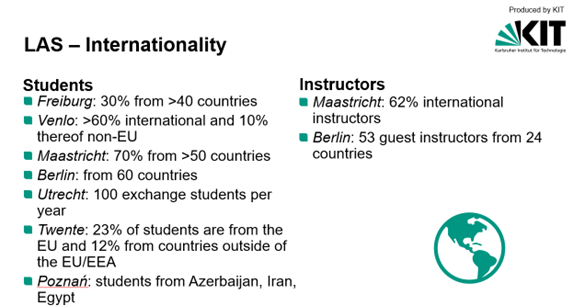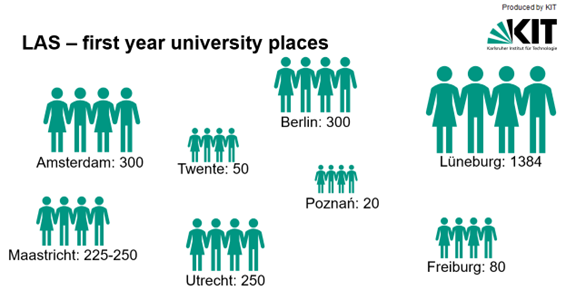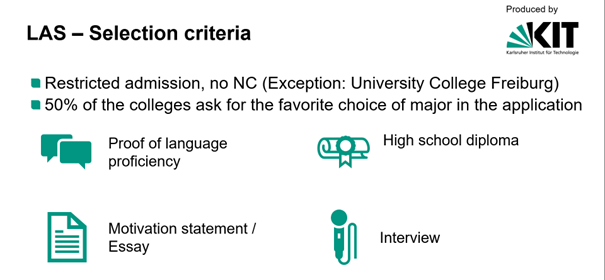EPI-WIKI
A Best Practice Guide for implementing Liberal Arts and Sciences at European Higher Education Institutions,
offered to you by EPICUR European University Alliance
Tabs
Programme Size and Target Group

What kind of student population do you want to attract and how to succeed?
The student population will be a main factor influencing your programme. Purposefully deciding what kind of student you want to attract will also influence your marketing strategy.
Considerations and questions to ask
Student population
Many of the LAS programmes in Europe are specifically targeting an international population with the aim of increasing intercultural awareness, communication skills and citizenship skills. These programmes are usually taught in English and they turn out to be attractive especially to students who are considering an international career. There are also programmes that focus mainly on the home population, teaching in the national language. These will have less focus on global citizenship, and more on national or local citizenship like many of the LAS programmes in the USA traditionally do. Whether you will have a national or international population will affect how you structure the citizenship components that are essential to all LAS programmes.
Overview of internationality of several LAS programmes (produced by KIT):
The student population you have in mind will also have an influence on the content of the programme. If you are aiming for international students, the language of instruction will most likely be English and the focus of the curriculum will probably be international or global as well. The level of the students will be an important factor: aiming for the top students will result in higher expectations from your students than when you aim more broadly. This will in turn translate into different types of courses, course materials and assessments. The focus of your programme may also require specific prerequisites from the applicants. Frequently secondary school systems require students to choose a specific direction: oriented more towards humanities and art, social sciences, natural or life sciences. Determine which profiles or school subjects are required to be successful in your programme, also for the most common international secondary school degrees for the admission of international students. Those designing the courses will need this information to create an optimal fit for their courses.
Perhaps you also want to include a student profile in addition to academic requirements. Are there specific characteristics you are aiming for? Often the LAS programmes are looking for students with a strong social commitment. If this is your aim, the programme should be designed in such a way that it will offer opportunities for students to further develop this aspect.
Questions to ask:
- How can the potential candidate be described? What is the profile of the ideal student for your programme?
- Is it a person in the process of self-discovery or a person with a clear vision of their future, pursuing an LAS degree as a mean to a specific end?
The size of your programme
Most programs in Europe are small to medium sized. LAS at Warwick University had an intake of 32 students for their programme; in contrast most of the Dutch programmes admit around 200 students per year. It is also possible that you would like to create a LAS component that all students in the university have to take, for example the compulsory Leuphana Semester at Leuphana University. Leuphana admits about 1500 students to their College each year, more than most Liberal Arts Colleges in the US do. These decisions can be influenced by pedagogical considerations about community building, but also the availability of teaching and support staff, facilities, and budgetary constraints.
Overview of programme size of different LAS programmes (produced by KIT)
Whom to attract and how
Your target group will vary depending on Language of Instruction, academic requirements and socio-economic background.
Language of instruction
You should decide whether you are targeting a more international population or a more local one. You might want to attract more international students in order to increase intercultural awareness, communication skills and citizenship skills. The language of your course will probably be English and the focus of your curriculum will most likely be international or global. However, if your target group is a local one your program will be taught in the national language and it will focus more on national or local citizenship.
You should decide whether you are targeting a more international population or a more local one. You might want to attract more international students in order to increase intercultural awareness, communication skills and citizenship skills. The language of your course will probably be English and the focus of your curriculum will most likely be international or global. However, if your target group is a local one your program will be taught in the national language and it will focus more on national or local citizenship.
Academic requirements
Aiming for the top students will result in higher expectations from your students than when you aim more broadly. This will in turn translate into different types of courses, course materials and assessments. The focus of your programme may also require specific prerequisites from the applicants. Frequently secondary school systems require students to choose a specific direction: oriented more towards humanities and art, social sciences, natural or life sciences. Determine which profiles or school subjects are required to be successful in your programme, also for the most common international secondary school degrees for the admission of international students. Those designing the courses will need this information to create an optimal fit for their courses.
Aiming for the top students will result in higher expectations from your students than when you aim more broadly. This will in turn translate into different types of courses, course materials and assessments. The focus of your programme may also require specific prerequisites from the applicants. Frequently secondary school systems require students to choose a specific direction: oriented more towards humanities and art, social sciences, natural or life sciences. Determine which profiles or school subjects are required to be successful in your programme, also for the most common international secondary school degrees for the admission of international students. Those designing the courses will need this information to create an optimal fit for their courses.
Perhaps you also want to include a student profile in addition to academic requirements. Are there specific characteristics you are aiming for? Often the LAS programs are looking for students with a strong social commitment. If this is your aim, the programme should be designed in such a way that it will offer opportunities for students to further develop this aspect.
Socio-economic backround
An international programme will appeal to students from many different countries where the cost of living might be lower than in your own. These might be students that fit your programme really well and also whom you really need to increase the diversity in your population. Find out which sources for scholarships and financial support are available, either within your university, nationally or even internationally. Using networks to find corporate sponsors is also a way to create more opportunities for students who will need support to study at your programme. Draw up clear criteria for awarding financial support.
An international programme will appeal to students from many different countries where the cost of living might be lower than in your own. These might be students that fit your programme really well and also whom you really need to increase the diversity in your population. Find out which sources for scholarships and financial support are available, either within your university, nationally or even internationally. Using networks to find corporate sponsors is also a way to create more opportunities for students who will need support to study at your programme. Draw up clear criteria for awarding financial support.
Admission procedures
Once you have established the student profile, you have to define your recruitment strategies: where will you find the students you would like in your programme? This will require special consideration if your LAS programme is aimed students who are currently not coming to your university. Be prepared to invest in both online presences and marketing in person, which will require travelling if you are aiming for an international population. You may also want to join international recruitment groups like the Council of International Schools.
Admission guidelines could be conceptualized in two ways: it may be that you have abundant places available and admission is only subject to a candidate meeting the minimum requirements for admission to the university, for example a secondary school diploma. The other is to have selective admissions for a limited number of places, which can be exclusive (in either a negative or positive sense depending on your admissions goals).
An additional consideration:, socio-economic diversity and admissions. An international programme will appeal to students from many different countries where the cost of living might be lower than in your own. These might be students that fit your programme really well and also whom you really need to increase the diversity in your population. Find out which sources for scholarships and financial support are available, either within your university, nationally or even internationally. Using networks to find corporate sponsors is also a way to create more opportunities for students who will need support to study at your programme. Draw up clear criteria for awarding financial support.
Questions to ask:
- Should your students have specific knowledge before starting your programme?
- Do they need to achieve a certain grade, a combination of grades, a score of points? If you are targeting international audiences, have the international office of your university help you determine the minimum entrance requirements.
- Will there be an entrance exam? If so, is this nationally or centrally arranged or do you have to organise this yourself?
- Is there a national application system that you have to use, like UCAS in the UK or Studielink in the Netherlands? How will that influence your admissions procedure?
- If your LAS programme will be international, how will you assess the level of English? There are several widely used tests: Test of English as a Foreign Language (TOEFL), International English Language Testing System (IELTS), Cambridge English Language Testing, are among the most widely accepted. Other languages also have their own standardized tests. Decide which scores you require for each test. If your classes will be highly interactive and students will have to read and write a lot, you will have to set higher expectations.
If admissions is going to be selective, design your admissions procedure:
- How will you determine which students meet your requirements?
- Which elements will the application process require and what the minimum requirements?
- Will an interview or admissions day, where all applicants are assessed at the same time in a variety of ways, be part of the procedure or is a paper application sufficient?
- Do you want to consider online admissions activities like an online module that needs to be completed?
Overview of admission procedures at different LAS programmes (produced by KIT)
The student population and admission procedures at EPICUR partners:
Amsterdam University College
AUC currently admits 300 new students each year, including both Dutch and international students. AUC has just around 900 students in total.
The AUC Admissions Committee looks for students with the following characteristics:
- academic excellence: students must demonstrate their ability to meet the academic demands of the AUC programme
- motivation and ambition to study an intensive and broad programme
- commitment to contribute to AUC's international student and campus life
In order to be eligible for admission to AUC, students need to meet the following minimum requirements.
- Secondary school diploma equivalent to the Dutch VWO
- A very good level of written and spoken English
- Good mathematics skills
Average secondary school GPA:
AUC students have on average a secondary school GPA of ≥7.5 in the Dutch system (≥ 3.0 for US and other high schools, ≥ 5 for IB, ≥ 10 for Abitur). Please note that when assessing an application we look at grades over a longer period of time to ensure that one poor exam does not receive too much weight. We are attentive to explanations of why formal grade criteria are not met.
AUC students have on average a secondary school GPA of ≥7.5 in the Dutch system (≥ 3.0 for US and other high schools, ≥ 5 for IB, ≥ 10 for Abitur). Please note that when assessing an application we look at grades over a longer period of time to ensure that one poor exam does not receive too much weight. We are attentive to explanations of why formal grade criteria are not met.
Conditional offers:
If students do not (yet) meet the admission requirements, they can still apply. Small deficiencies in meeting our English and/or maths requirements will not prevent their application from being reviewed and they will be able to work toward rectifying these deficiencies before their intended start date at AUC. Any offer of a place at AUC will be on a conditional basis. The conditions will be specified in the letter offering them a place. They will have to meet those conditions before you can be admitted.
If students do not (yet) meet the admission requirements, they can still apply. Small deficiencies in meeting our English and/or maths requirements will not prevent their application from being reviewed and they will be able to work toward rectifying these deficiencies before their intended start date at AUC. Any offer of a place at AUC will be on a conditional basis. The conditions will be specified in the letter offering them a place. They will have to meet those conditions before you can be admitted.
Assessment and review process:
All applications are carefully assessed on their individual merits in a review process. The whole application dossier is taken into consideration, with due attention given to students' academic abilities.
All applications are carefully assessed on their individual merits in a review process. The whole application dossier is taken into consideration, with due attention given to students' academic abilities.
Batch processing:
AUC reviews applications in two batches that correspond with the two application deadlines. Applications from candidates who apply as ‘early birds’ (by 1 December) will receive a decision on admission in the first week of February. Applications for those who apply for the regular deadline (by 1 February) are processed after initial offers are made to ‘early bird’ candidates, with decisions on admission being issued in the first week of April.
AUC reviews applications in two batches that correspond with the two application deadlines. Applications from candidates who apply as ‘early birds’ (by 1 December) will receive a decision on admission in the first week of February. Applications for those who apply for the regular deadline (by 1 February) are processed after initial offers are made to ‘early bird’ candidates, with decisions on admission being issued in the first week of April.
Batch processing helps to ensure equality in consideration of all candidates who submit an application for a given deadline regardless of when they apply before the stated deadline.
Procedure for reviewing applications:
Each application is assessed by faculty members working in the admissions team, which is composed of experienced academic and support staff members. During an initial check, the AUC admissions team looks to see if an application is complete (including having received two recommendations) and the minimum diploma requirements are met.
Each application is assessed by faculty members working in the admissions team, which is composed of experienced academic and support staff members. During an initial check, the AUC admissions team looks to see if an application is complete (including having received two recommendations) and the minimum diploma requirements are met.
All completed applications which meet the minimum diploma requirements and are submitted on time are then reviewed by academic tutors under the guidance of AUC’s Admissions Committee. Each application is independently reviewed by two admissions tutors based on clearly defined criteria as described in the policy on admissions below. If the two tutors reviewing a certain application agree as to whether the applicant should be offered a place at AUC, they then put the applicant forward to the Admissions Committee for consideration in the cohort. Should the two reviewers diverge in their decision, the Admissions Committee will investigate whether the candidate qualifies for an offer.
Based on the recommendations of the admissions tutors, the Admissions Committee decides on the number of offers to be made based on the criteria and composition of all possible applicants in a cohort, per batch.
Applicants who are selected by the Admissions Committee are made an offer of a place to study at AUC. For early-bird candidates (applying by 1 December), offers are made in the first week of February. For candidates applying for the regular deadline (by 1 February), offers are made in the first week of April. Applicants who receive an offer must respond within the stated deadline in their offer letter as to whether they accept the offer and intend to study at AUC.
Optional Welcome Days:
After receiving an offer, accepted students are invited to attend an optional Welcome Day (in the Academic Building) and/or a Meet & Greet (online) with an AUC tutor. The Welcome Days and Meet & Greets take place over the course of February for early-bird applicants, and in April/early May for regular applicants.
After receiving an offer, accepted students are invited to attend an optional Welcome Day (in the Academic Building) and/or a Meet & Greet (online) with an AUC tutor. The Welcome Days and Meet & Greets take place over the course of February for early-bird applicants, and in April/early May for regular applicants.
While optional and not part of the application review process, the Welcome Days and Meet & Greets allow accepted students to make an informed decision by having an additional chance to visit the campus, speak with one or more academic staff members, meet current AUC students, tour the academic building and student residences, and ask any final questions they may have before enrolling.
Forming a diverse community:
In parallel to the consideration of individual students on their personal performance and profile, the Admissions Committee also pays attention to the composition of a socially coherent yet diverse cohort of students. Consequently, AUC seeks to establish an academic community that reflects the social, cultural and economic diversity of our world and encourages intercultural learning through ongoing dialogues between people with a variety of experiences and world views.
In parallel to the consideration of individual students on their personal performance and profile, the Admissions Committee also pays attention to the composition of a socially coherent yet diverse cohort of students. Consequently, AUC seeks to establish an academic community that reflects the social, cultural and economic diversity of our world and encourages intercultural learning through ongoing dialogues between people with a variety of experiences and world views.
The AUC Admissions Committee, therefore, aims to put together a student body with a high academic profile and diverse mix of social, cultural and economic backgrounds.
A prospective student’s grade point average (GPA) will be used as an indicator of their academic performance and will be taken into consideration alongside their interests and motivation as expressed in:
- a personal study plan and self-assessment academic recommendations from, for example, the head of their secondary school and (former) teachers
University College Freiburg
Liberal Arts and Sciences at UCF is a BA program for those who value academic breadth, in-depth study, and intellectual creativity and who want to give their studies an individual emphasis in an inspiring and international environment.
Has about 300 students from over 40 countries. Each new cohort has roughly 80 students. More than 25% of students are international (https://www.ucf.uni-freiburg.de/liberal-arts-and-sciences/study-abroad)
One distinct difference is the selection interview (although we’re not alone with that)
Starting LAS is only possible in the winter semester. The regular application period is June 1 – July 15.
Selection is based on academic achievements and motivation for studying LAS in Freiburg.
There are two application processes – depending on students’ citizenships and where they acquired their University entrance qualification:
1. EU and EEA citizens and international applicants with a German Abitur:
Application documents:
- University entrance qualification
- B2 English proficiency
- Application essay
- Letter of motivation
- Declaration of authorship
- Study-orientation-test
- Confirmation of the applicant
- In-person interview request
Recognition of Qualifications:
Applications will be considered for the selection process if (1) it includes all required application documents as listed above and (2) the non-German school leaving certificate is recognized as a German University entrance qualification by the University's International Admissions and Services (IAS).
Applications will be considered for the selection process if (1) it includes all required application documents as listed above and (2) the non-German school leaving certificate is recognized as a German University entrance qualification by the University's International Admissions and Services (IAS).
Selection:
LAS is a selective program. Not all applicants are admitted. The selection involves the following steps:
LAS is a selective program. Not all applicants are admitted. The selection involves the following steps:
Preliminary Selection:
Students are ranked according to the (converted) final grade of their University entrance qualification and their application essay.
Students are ranked according to the (converted) final grade of their University entrance qualification and their application essay.
Selection Interview:
Based on the preliminary ranking, interview invitations are sent out about 7-10 days after the application deadline. The selection interviews are conducted online in the week of August 1, 2022. In-person interviews in Freiburg are possible under circumstances of social hardship.
Based on the preliminary ranking, interview invitations are sent out about 7-10 days after the application deadline. The selection interviews are conducted online in the week of August 1, 2022. In-person interviews in Freiburg are possible under circumstances of social hardship.
The interview is not an exam with predetermined questions and expected answers. Rather, the letter of motivation is the starting point for a 30-minute conversation in which students can show that they have the motivation and aptitude for studying LAS and a clear perception of their future plans.
Final Selection:
After the interviews, applicants are ranked according to their "selection score" – a combination of their University entrance qualification grade and their interview score.
After the interviews, applicants are ranked according to their "selection score" – a combination of their University entrance qualification grade and their interview score.
2. Non-EU students without a German Abitur
The application process is the same with the exception of the interview. For legal reasons, selection interviews are not possible for non-EU applicants.
Adam Mickiewicz University Poznán
Source: https://las.amu.edu.pl/en/
Liberal Arts and Sciences at AMU is a BA program for those whose interests do not fit within one discipline. Instead of specialisation, it offers knowledge from many fields of research and helps students to develop general skills.
AMU sought to accept 20 students. After two turns of interviews during the summer of 2022, 19 students enrolled at LAS. After the first examination session (winter 2021), 13 students remained. The number dropped further to 9 students plus one person who had withdrawn participation in the program for a year, with retention rate of 52,6%. Many factors contributed to this number, among others:
- Covid-19 pandemic and remote teaching made logistics of studying much less complicated and thus encouraged some students to take two undergraduate courses at the same time; overtime doubled obligations turned out to be tougher to maintain.
- Understanding and popularity of the Liberal Arts and Sciences concept in Poland is relatively low, which can lead to misguided expectations towards the program.
- The interdisciplinary character of the program may work as an attractor for students who have not developed a vision of their educational path yet and are thus prone to drop out.
Standard admission procedure at AMU relies on the results of Polish High School Exam (matura) (0-100 points to score). To better assess candidates’ academic capability, LAS admission procedure also includes interview (0-100 points to score, 60 to pass). Candidates prepare two topics from their preferred field of research and present one of them during the interview . LAS interviewers ask follow-up questions to test reactions to opposing viewpoints, ability to incorporate new information etc. The interview is indispensible in the case of international view. With candidates from different educations systems with varying programs, direct contact is the only way to verify their competencies.
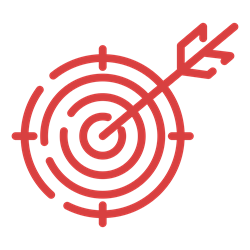
Learning Aims and Educational Philosophy
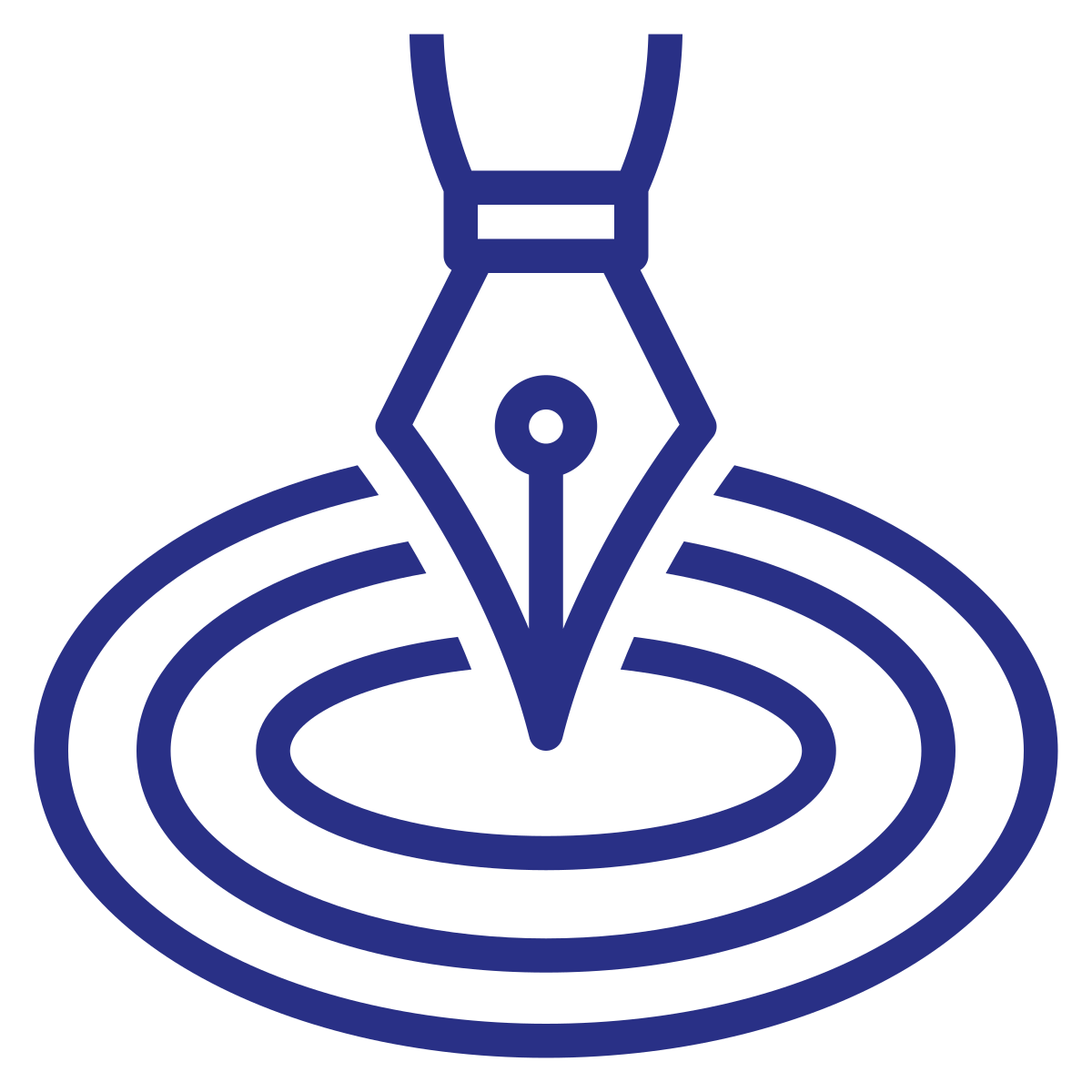
Curriculum Design

Language of Instruction
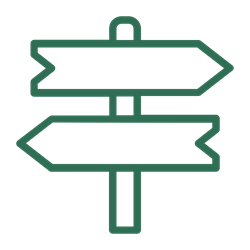
Integration of Study Abroad, Internships, etc.
Related Wiki pages
These Wiki pages might also be interesting for you:
Back to IMPLEMENTATION > Establishing LAS Programmes at Your Institution > Curriculum Design & Articulation
Last edited: 28. Oct 2022, 12:21, [sr1149@uni-freiburg.de]
